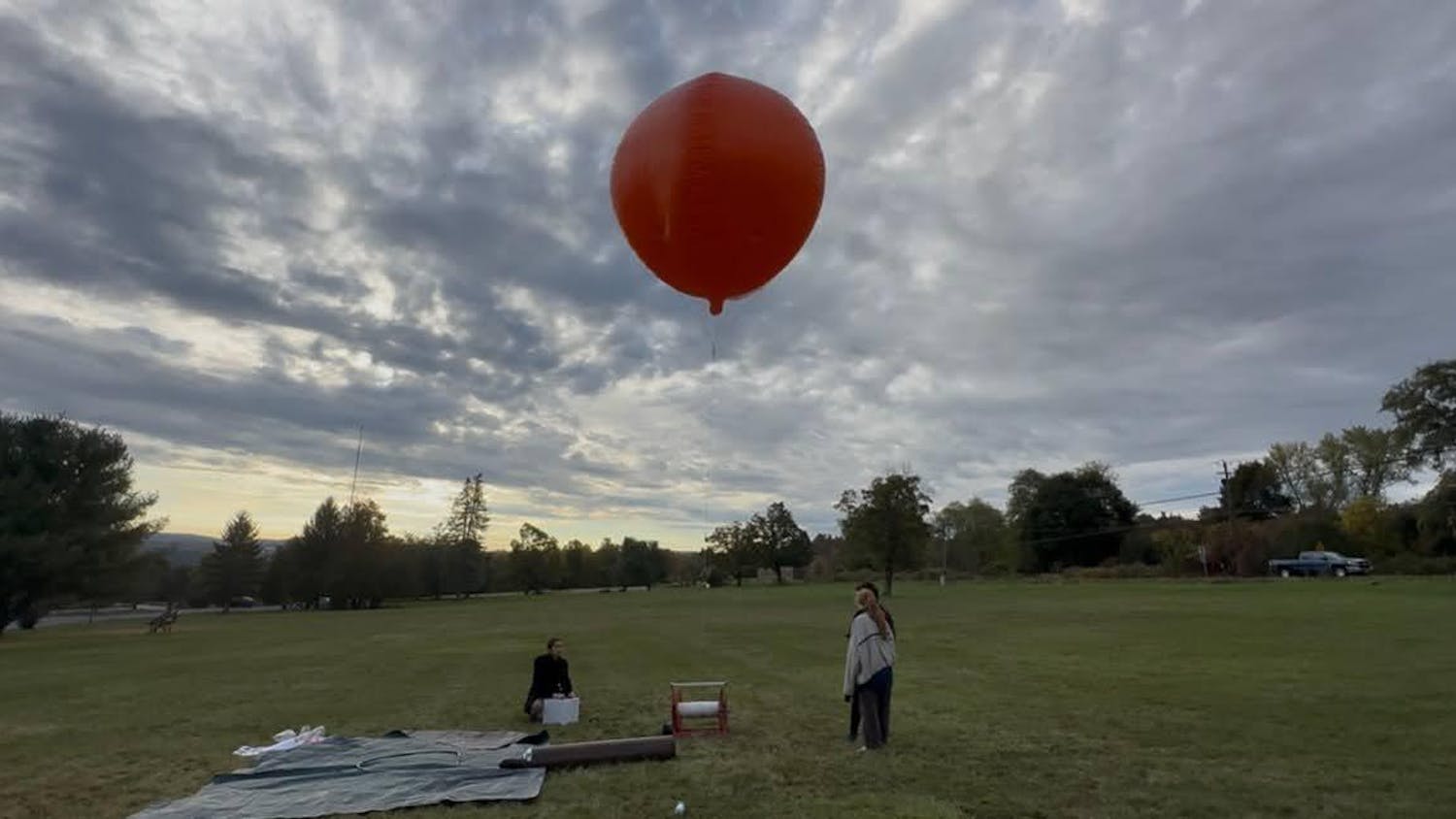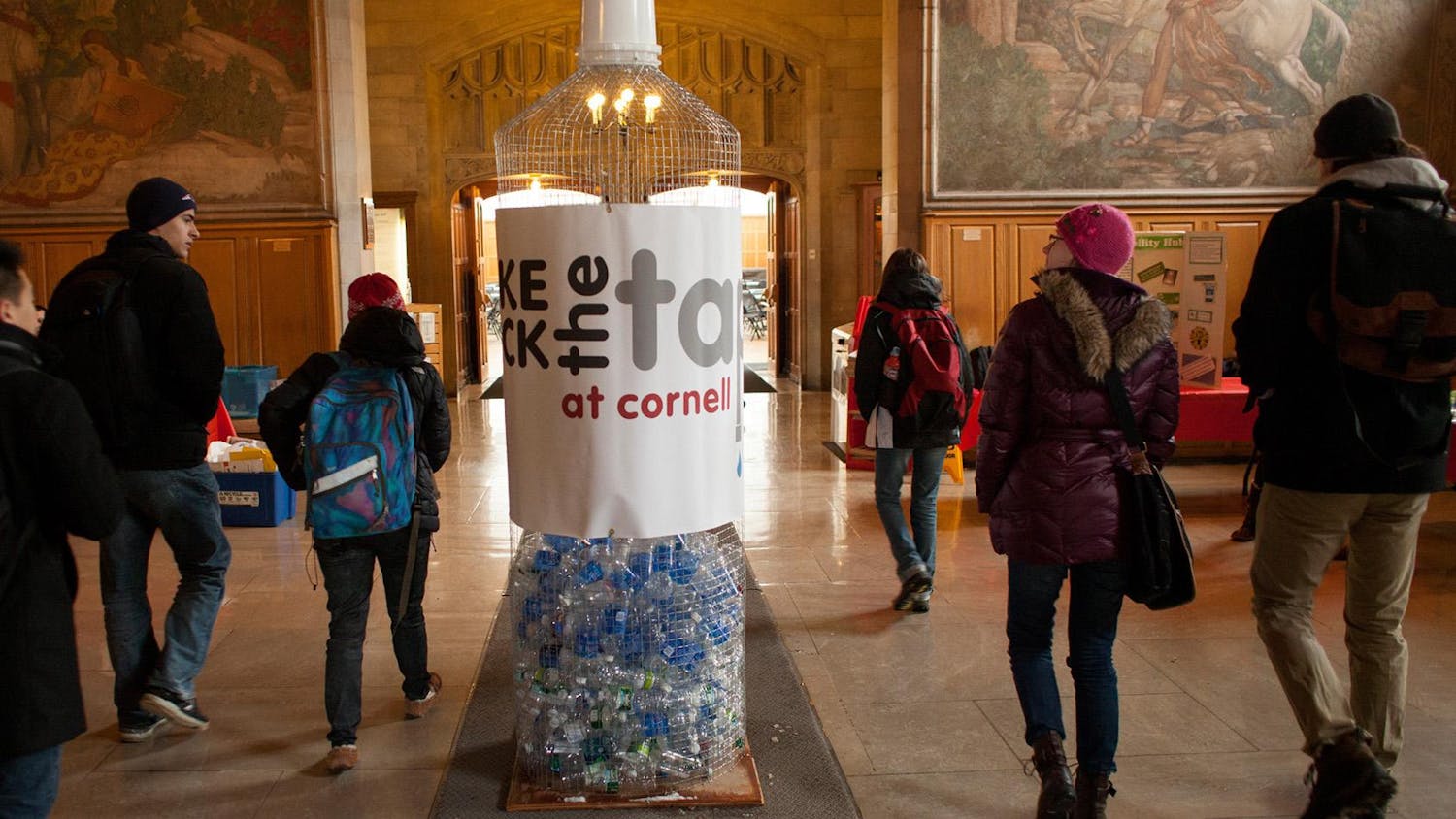“The future of eating food will be delicious,” announced Dan Barber, a world-renowned chef and owner of the Blue Hill Restaurants in Westchester County and Manhattan. Barber gave a lecture, “Cultivating Flavor- a Recipe for the Recipe” at Call Auditorium on Monday. Introduced to the assembly as “one of the leading thinkers and creative chefs in the field of sustainable food,” Barber spoke about the future of sustainable agriculture as the key to a balanced environment and better tasting food. He focused on the farming methods and ecologically sustainable techniques of Stone Barns Center for Food and Agriculture, which supplies fresh food to his restaurant. The goal of Stone Barns is “to produce food that is economically and ecologically successful for the future,” Barber said. Stone Barns has about seven acres of outdoor cultivated vegetables and was founded in the late 1920s with money provided by the Rockefeller family. Barber, who serves on Stone Barns Board of Directors, described the farm as a model of a localized and ecological food system. Along with Barber’s other colleagues at the farm, Jack Algiere, head of vegetable management, started a diversified vegetable operation housed inside a half-acre sized greenhouse. Working in conjunction with Algiere’s work in the vegetable garden is Greg Twehues, manager of Stone Barns’ soil nutrients and compost production. “We’re building a recycling station in which our system takes manure and restaurant food waste to build compost for Jack’s greenhouse,” said Twehues, who operates the 1.3 acres of farmland used for compost construction. Along with providing the nutrient foundation for the crops, the compost station also helps power the low-energy greenhouse, he said. “There’s a forced–air system next to the greenhouse which recovers energy from our compost and pushes it through a coil,” Twehues explained. The forced-air system allows the farm to run warm water to heat the soils in the greenhouse, “lessening our reliance on fossil fuels.” The farm also used Biochar, a type of pulverized charcoal made from recycled pig bones, lumber, corn cobs and even lobster shells as a fertilizer that enhanced vegetable flavor according to Barber. “In order to find the future of delicious food, we need to look at a different type of recipe — the recipe of ingredients before they ever touch a chef’s hand,” Barber said. This meant making effective changes to livestock breeding and feeding techniques to successfully alter the way farm animals taste. The nutrient cycling, animal input, and vegetative output of the forest foraging technique is the result of collaboration between Stone Barns’ various fields. Barber also spoke of his collaborations with faculty and researchers at Cornell calling the plant breeding efforts of the land-grant university critical to the future of how we eat. “The work we’re doing with Cornell University will create opportunities to shape the way food is grown in the future… this collaboration will help to make us a better farm as we think of the future production of food.” Barber’s colleagues also pointed out that increased collaboration between related fields like nutrition, soil science and plant breeding could lead to a more sustainable upstate New York. Original Author: Nicholas St. Fleur
Future of Food
Reading time: about 3 minutes
Read More










